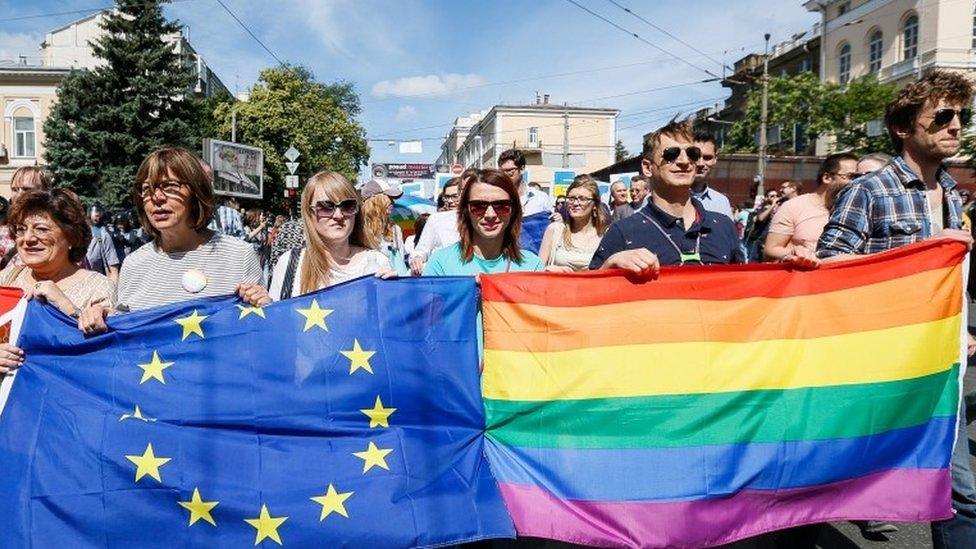In recent years, Europe has emerged as a global leader in promoting LGBTQ+ rights, with many countries legalizing same-sex marriage, banning conversion therapy, and enforcing strict anti-discrimination laws. While some celebrate these changes as progress toward equality, others question why European governments and institutions are so aggressively advancing what they call the “LGBTQ agenda.”
This article explores the reasons behind Europe’s strong push for LGBTQ+ rights, the political and cultural motivations, and the controversies surrounding these policies.
1. Legal and Institutional Commitments to Human Rights
Europe has long positioned itself as a defender of human rights, with organizations like the European Union (EU) and the Council of Europe advocating for equality. Key treaties, such as the European Convention on Human Rights, emphasize non-discrimination, which has been interpreted to include protections for LGBTQ+ individuals.
- The EU’s LGBTQ+ Equality Strategy (2020-2025) seeks to combat discrimination, ensure legal recognition for same-sex families, and protect LGBTQ+ people from hate crimes.
- The European Court of Human Rights (ECHR) has ruled against countries that ban pride parades or restrict LGBTQ+ rights, pressuring nations to comply.
Critics argue that these policies sometimes override national sovereignty, forcing more conservative countries (like Poland and Hungary) to adopt progressive laws against public opinion.
2. Cultural Shifts and Generational Change
Younger generations in Europe are far more accepting of LGBTQ+ rights than older ones. Surveys show that:
- Over 70% of Europeans support same-sex marriage (Pew Research, 2023).
- Countries like Sweden, the Netherlands, and Spain rank among the most LGBTQ+-friendly in the world.
This cultural shift has led governments to reflect changing attitudes in their policies. However, critics claim that activists and media are accelerating this shift beyond natural societal evolution, leading to backlash in more traditional regions.
3. Political and Economic Incentives
Some argue that Europe’s push for LGBTQ+ rights is also politically and economically motivated:
- Soft Power & Global Influence: By positioning itself as a progressive leader, Europe strengthens its moral authority against rivals like Russia and China, where LGBTQ+ rights are restricted.
- EU Membership Requirements: Countries seeking to join the EU must demonstrate progress on human rights, including LGBTQ+ protections.
- Corporate Influence: Many multinational companies advocate for LGBTQ+ policies, and progressive laws can attract talent and investment.
Opponents suggest that this is ideological colonialism, forcing Western values on nations with different cultural and religious traditions.
4. Backlash and Resistance
Not all Europeans support the rapid advancement of LGBTQ+ policies. Resistance comes from:
- Conservative Governments: Hungary and Poland have banned “LGBTQ propaganda” in schools, arguing it undermines traditional family values.
- Religious Groups: The Catholic Church and Orthodox Christian leaders have opposed same-sex marriage and gender ideology.
- Populist Movements: Right-wing parties in Italy, France, and Germany claim that LGBTQ+ activism is “forced indoctrination.”
Some citizens fear that freedom of speech and parental rights are being eroded in the name of inclusivity.
5. Is Europe Going Too Far?
While many see Europe’s LGBTQ+ policies as necessary progress, critics argue:
- Children’s Education: Some parents oppose LGBTQ+ topics being taught in schools at an early age.
- Freedom of Conscience: Businesses and individuals have faced legal consequences for refusing to endorse same-sex weddings.
- Biological vs. Gender Identity Debates: Laws allowing self-identification of gender (without medical approval) remain controversial.
Conclusion: A Clash of Values?
Europe’s strong push for LGBTQ+ rights stems from human rights commitments, cultural changes, and political strategy. However, the speed and enforcement of these policies have sparked fierce debates about democracy, tradition, and freedom.
As Europe moves forward, the challenge will be balancing equality with diverse cultural values—without deepening societal divisions.











